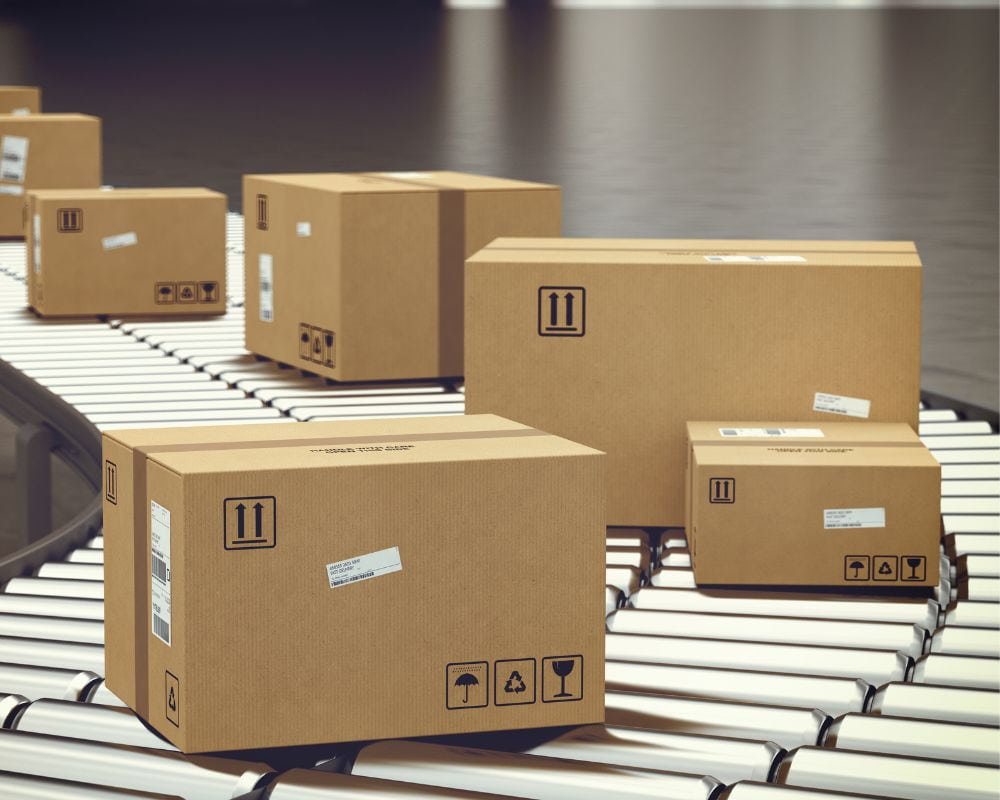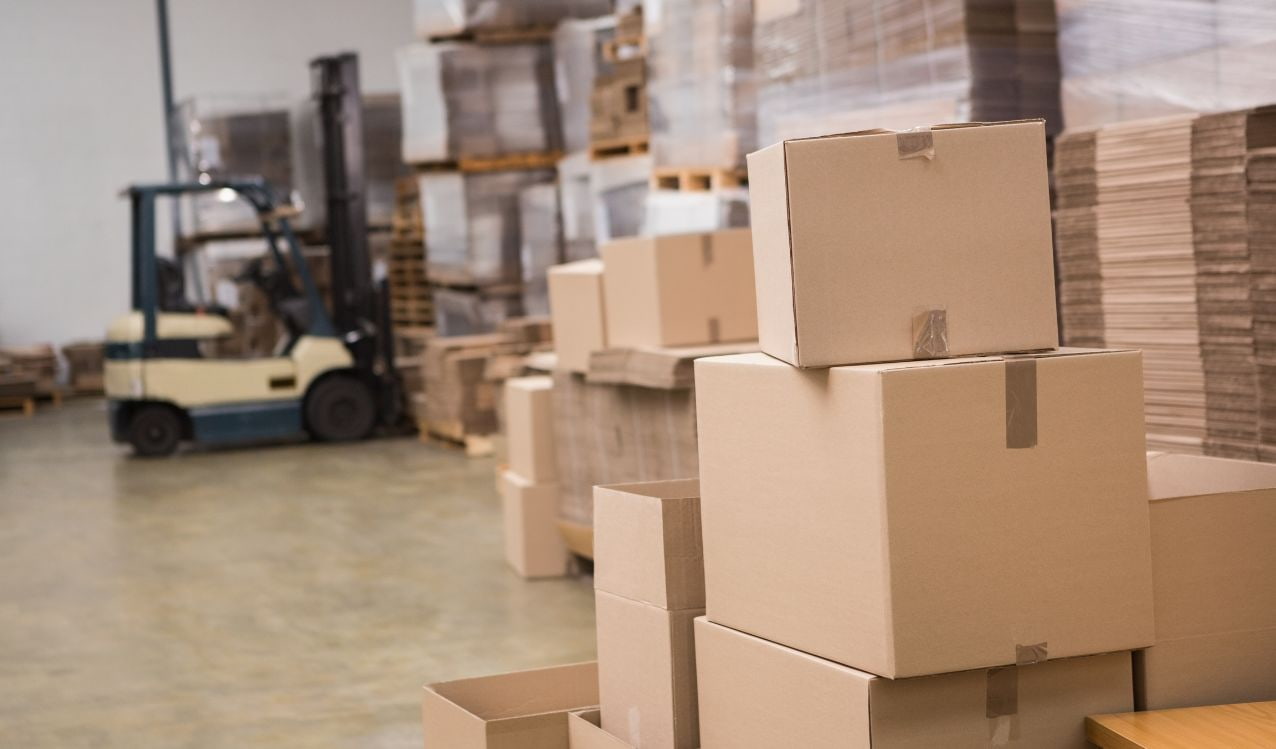Discover how a supply chain works
What is the supply chain?
The truth is that the concept of supply chain could not be broader. In fact, it encompasses any action that contributes to a good being manufactured and reaching the consumer. Thus, this function would start with the provision of raw materials with which the product will be manufactured.
Although complex by definition, the supply chain (also known as value or procurement chain) has become more challenging in recent times. Globalisation and the unstoppable growth of e-commerce have had a significant impact on it.
Planning, executing and reviewing the different stages of the supply chain is crucial for the entire process to move forward while providing 100% satisfaction. We must not forget that each of its links depends on the others. As a result, if a company or supplier fails and we fail to remedy it in time, nothing will work as it should.
Discover how we can help you.
Contact usWhat processes are carried out in the supply chain?
Being a chain, the supply chain is made up of several consecutive links or phases.
Schematically, we can categorise up to six stages that begin with the planning of the entire process and end with the distribution and delivery of the already manufactured product.
Planning
Planning could be said to operate as a “phase zero” of the supply chain. It is necessary to plan for the proper management of resources to satisfy the demand of buyers.
This is where you design all your phases in such a way that you can meet your business objectives in the most efficient way possible.

Supply
The first link in the value chain is gathering everything needed to produce the goods that we will sell to consumers.
Of course, the correct functioning of this phase requires ensuring that such inputs are available in sufficient quantities. In this case, we must also consider the time it will take to obtain it.

Manufacturing
Once the raw materials have been obtained, the next stage involves the operations aimed at transforming them into the actual merchandise. It is, therefore, a manufacturing process designed to mass produce the products that we are going to sell.
Including the function of quality control in this phase is crucial in having our products make a difference.
Stock storage and management
Warehousing involves temporarily storing products in a space called a warehouse, managing the incoming and outgoing flows in the most cost-effective way possible. In addition, at this stage it is necessary to control the quality and quantity of the stored goods by keeping an inventory.
Distribution: transport and delivery
This phase begins when the merchandise leaves the warehouse and ends when it is delivered to the final consumer. This is done through a network of retail distributors and last mile carriers.
Naturally, for this stage to be completed with full satisfaction, it is essential that delivery is on time and that the product arrives in an optimal condition
Returns
In principle, the supply chain concludes with the delivery of the goods. However, if the customer is not satisfied with the product received and decides to return it, it will be returned to the company that sent it. In these cases, the merchandise follows the stages of the supply chain in reverse.
Differences between the supply chain and traditional logistics
It is a quite common mistake to believe that the supply chain and logistics are the same thing. In reality, logistics is only the part that includes storage, transportation and delivery of goods.
The supply chain, on the other hand, goes far beyond these activities, as it also deals with the supply of raw materials and the manufacturing of the product.
Let us think, for example, of an online bookstore that sells physical books. Their logistics will only be responsible for storing, distributing and delivering them to buyers.
However, its supply chain begins from the moment the cellulose was obtained to make the paper with which these volumes were published. Thus, it is easy to see that the second is a much more extensive process than the first.
Comparison between logistics and the supply chain
To make it even clearer that the supply chain and logistics are not the same thing, we can show you the seven features that set them apart in the following table:
|
|
Supply chain
|
Traditional logistics
|
|
Concept
|
Fully manages the life cycle of merchandise: from obtaining the materials necessary for manufacturing until delivery to the final buyer.
|
Another link in the value chain (which occurs once the merchandise has been manufactured). It starts with storage and ends with delivery to the consumer.
|
|
Inter-linkage
|
Is global in nature, with logistics being one of its integral elements.
|
A portion of the supply chain. It includes several of the stages that comprise it.
|
|
Functional sphere
|
All operations related to the manufacturing, sale and distribution of merchandise (quality control, customer service, logistics manufacturing, etc.)
|
Limited to storage, distribution and returns.
|
|
Related organisations
|
Typically, several companies participate in the same distribution chain.
|
Can be managed entirely by a single company.
|
|
Milestone
|
Increase profits and boost competitiveness in a sustainable manner.
|
Achieve customer satisfaction by offering optimal order management.
|
|
Professional profile of the supervisor
|
Supply chain manager
|
Logistics manager or chief
|
|
Software used
|
Supply chain Management Systems: SCM or the integration of various ERP, WMS, TMS, platforms
|
Warehouse Management Systems (WMS) and transport software |
How to optimise all phases of the supply chain?
Enhancing flexibility
A well-oiled supply chain is essential when it comes to responding to any unforeseen events in a fast and efficient manner. It is important to remember that, no matter how well planned its phases are, it can be affected by all kinds of unexpected events.
Speeding up deadlines
Developing a substantial value chain management has become essential to optimising last mile deliveries. This is a direct result of the flexibility that it brings to the entire process: if we can stay one step ahead of unforeseen events, we will be prepared to resolve them in a satisfactory way.
Boosting efficiency
One of the most obvious benefits of the value chain is its ability to increase business profitability. Better quality products and faster deliveries generate greater customer satisfaction… and that is key when it comes to building customer loyalty.
Enabling traceability
Traceability improves trust and coordination among those involved in the value chain. It is also especially useful for diagnosing which points can be optimised to make it faster and more sustainable.
Improving customer satisfaction
We cannot imagine a good customer journey without adequate supply chain management. In order to provide the best experience to the buyer, we need all the links in the chain to work perfectly.
Optimising coordination
We have already explained that global control of the distribution chain allows us to reduce the lead times between its links as much as possible. This results in cost optimisation, which allows us to increase our profits.
As a result of all the above, it is clear that national and international competitiveness benefits when the optimal functioning of the supply chain is ensured. Those who produce high-quality products and deliver them to their customers on time are in a position to increase their market share.
What challenges does the supply chain face?
In an increasingly globalised world, the challenges that companies face in managing their supply chain are becoming greater and greater. Of course, facing them with the help of our logistics partner offers us greater chances of success: only in this way will we be guaranteed to be up to the task.
The challenge of sustainable logistics
The burden of observing environmentally friendly practices falls on the entire supply chain.
At this point, the growing environmental awareness of consumers is accompanied by greater legislative rigour. Hence the importance of working with a logistics operator that:
- Optimises delivery routes.
- Correctly recycles waste.
- Reuses packaging.
Satisfying a very demanding consumer
The end buyer is one of the biggest challenges that the distribution chain must overcome. After all, their level of demand has skyrocketed in recent times due to the growing popularity of onlin e-commerce.
The strong interdependence between e-commerce and the supply chain has led to the widespread adoption of demanding requirements such as free returns and deliveries within 24/48 hours.
Inflation and cost savings
Geopolitical volatility has resulted in increased costs of materials, labour and energy. Thus, to continue offering competitive prices, inventory control and relationships with suppliers must be strengthened.
Globalisation
The globalised market makes the task of managing the value chain considerably more difficult. After all, there are multiple laws, languages, time zones and exchange rates that come into play. Therefore, there is no greater security than working with an international logistics operator international logistics operator.
Adapting to changes in demand
Those who manufacture and sell goods know better than anyone how often consumer trends change. Value chain management must therefore be flexible enough to anticipate how consumer demand will evolve.
Not missing the technological train
SCM, ERP, IoT, AI, automation… The comprehensive nature of the supply chain means that many technologies can be applied to the process. Exploiting their potential and continually adapting to them is crucial to achieving successful management.
Beyond adapting to a constantly changing technological landscape, managing the value chain also involves analyzing vast amounts of data. Doing so with the right technology is necessary not only to comply with legal requirements, but also to make better decisions.

Logisfashion supports you in all phases of the supply chain
In short, optimising supply chain management has become essential to take merchandise sales to the next level. This personalised and comprehensive management is what we offer you at Logisfashion. Make us your logistics partner and conquer the national and international market with our end-to-end services.
